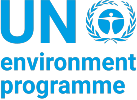How clean is the air you're breathing today?
Over 99 per cent of the world’s population is exposed to polluted air and every year, 6.7 million deaths are associated with it, primarily in low- and middle-income countries.
The pollution of our atmosphere arises from human activities, notably the emission of greenhouse gases through actions like agriculture, transportation, industry and household operations. Waste disposal also contributes significantly. Air pollution has a tremendous impact on human health and nature.
If we do not act now, our future generations might not see the clear blue skies that we see now. The United Nations’ International Day of Clean Air for blue skies, held on 7 September each year, aims to raise awareness and improve efforts to promote clean air. Leading up to the fourth annual observance, held under the theme “Together for Clean Air”, we engaged in a conversation with Shunichi Honda from UNEP's International Environment Technology Centre, delving into insights about air pollution and waste.

What is the link between waste and clean air?
Shunichi Honda (SH): About 50 per cent of the world's waste is not managed properly. Unfortunately, a part of this mismanagement involves open dumping and burning. When waste is disposed of in this manner, it releases harmful substances into the air. This can significantly impact both our health and the environment, making it difficult to breathe, and worsening existing health problems. That's why we need to manage our waste properly by recycling, composting, and safely treating waste. These actions help maintain the clean air, protecting both us and our planet.
What is UNEP International Environment Technology Centre doing to protect blue skies?
SH: Think of UNEP as a guardian of our beautiful blue skies. We're teaming up with governments in Asia, Africa and Latin America to ensure that waste doesn't harm the air we breathe. We're helping them develop better waste management plans, preventing it from ending up in places that can pollute the air, such as open dumps and burning sites. Additionally, we assist local waste teams in improving their waste-handling techniques to make the cities cleaner and normalize the circularity of waste as resources. These initiatives also contribute to improving the working conditions of informal workers in the waste management sector.
How does air pollution affect the working conditions of informal workers in the waste management sector?

SH: These workers, including children, are sometimes hired to collect, sort or dispose of waste in unsafe conditions. They might lack proper protective gear or access to information about the risks they face. When waste is managed in an unsafe manner, it can release harmful chemicals into the air and water, putting these workers and their communities at risk.
When UNEP assists local waste management teams in improving their practices, it directly benefits these informal workers. Safer and more environmentally friendly methods reduce the health and well-being risks, not just for the workers themselves but also for their families and communities. In simple words, UNEP's efforts not only protect our skies but also uplift the lives of those who work hard to maintain the cleanliness of our environment.
What actions can individuals, corporations and governments take?
SH: When we talk about waste, it's not just about getting rid of it – it's about how to manage it. Let me repeat that nearly half of the world's waste is not managed properly. This means waste can end up in the wrong places, like open dumps and burning piles. This releases harmful substances into the air, which is bad for both our health and the planet. But fortunately, there are still some things we can do for this! Do not throw away things easily and try to reuse and recycle as much as possible. Separate waste correctly and never litter. Small actions can make a big difference in keeping the air clean.
It's not only up to individuals. Companies and governments also make a significant impact. Companies can use less packaging and create products with reduced waste. They can design their products to be easily recycled, and support regulations for improved waste management. Governments also play a crucial role. They can establish strong regulations to prevent dumping and burning. By investing in better waste handling methods, they contribute to everyone breathing cleaner air and enjoying a safer environment.
So whether you are an individual, a company, or part of the government, every little step matters in keeping the air clean, our skies blue, and our planet sustainable.
-------------------------
For more information, contact Shunichi Honda <shunichi.honda@un.org>






